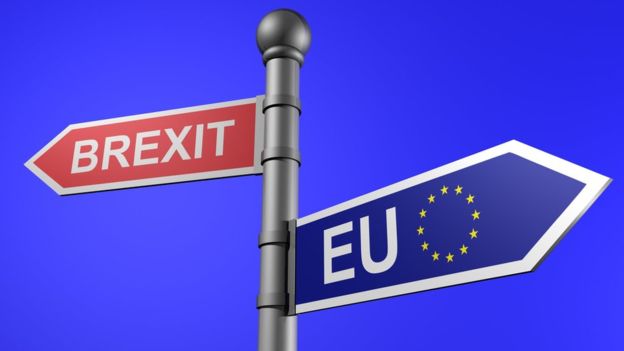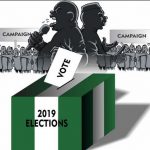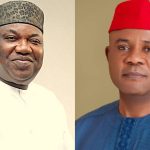On the day Britain was supposed to have left the European Union, voters instead faced the start of an election campaign, with opposition Labour leader Jeremy Corbyn pledging to overthrow a “rigged system” he said was run by billionaires and tax-dodgers.
After failing to deliver Brexit by the Oct. 31 deadline, Prime Minister Boris Johnson called the Dec. 12 election to break what he cast as a political paralysis that had thwarted Britain’s departure and undermined confidence in the economy.
Opinion polls suggest the election is Johnson’s to lose. His Conservative Party is leading Labour by 15 to 17 percentage points, according to IpsosMORI and YouGov. Yet the overshadowing issue of Brexit, which has divided both major parties and their voters, could confound conventional calculations.
On the day Britain was supposed to have left the European Union, voters instead faced the start of an election campaign, with opposition Labour leader Jeremy Corbyn pledging to overthrow a “rigged system” he said was run by billionaires and tax-dodgers.
After failing to deliver Brexit by the Oct. 31 deadline, Prime Minister Boris Johnson called the Dec. 12 election to break what he cast as a political paralysis that had thwarted Britain’s departure and undermined confidence in the economy.
Opinion polls suggest the election is Johnson’s to lose. His Conservative Party is leading Labour by 15 to 17 percentage points, according to IpsosMORI and YouGov. Yet the overshadowing issue of Brexit, which has divided both major parties and their voters, could confound conventional calculations.
On the day Britain was supposed to have left the European Union, voters instead faced the start of an election campaign, with opposition Labour leader Jeremy Corbyn pledging to overthrow a “rigged system” he said was run by billionaires and tax-dodgers.
After failing to deliver Brexit by the Oct. 31 deadline, Prime Minister Boris Johnson called the Dec. 12 election to break what he cast as a political paralysis that had thwarted Britain’s departure and undermined confidence in the economy.
Opinion polls suggest the election is Johnson’s to lose. His Conservative Party is leading Labour by 15 to 17 percentage points, according to IpsosMORI and YouGov. Yet the overshadowing issue of Brexit, which has divided both major parties and their voters, could confound conventional calculations.
On the day Britain was supposed to have left the European Union, voters instead faced the start of an election campaign, with opposition Labour leader Jeremy Corbyn pledging to overthrow a “rigged system” he said was run by billionaires and tax-dodgers.
After failing to deliver Brexit by the Oct. 31 deadline, Prime Minister Boris Johnson called the Dec. 12 election to break what he cast as a political paralysis that had thwarted Britain’s departure and undermined confidence in the economy.
Opinion polls suggest the election is Johnson’s to lose. His Conservative Party is leading Labour by 15 to 17 percentage points, according to IpsosMORI and YouGov. Yet the overshadowing issue of Brexit, which has divided both major parties and their voters, could confound conventional calculations.
On the day Britain was supposed to have left the European Union, voters instead faced the start of an election campaign, with opposition Labour leader Jeremy Corbyn pledging to overthrow a “rigged system” he said was run by billionaires and tax-dodgers.
After failing to deliver Brexit by the Oct. 31 deadline, Prime Minister Boris Johnson called the Dec. 12 election to break what he cast as a political paralysis that had thwarted Britain’s departure and undermined confidence in the economy.
Opinion polls suggest the election is Johnson’s to lose. His Conservative Party is leading Labour by 15 to 17 percentage points, according to IpsosMORI and YouGov. Yet the overshadowing issue of Brexit, which has divided both major parties and their voters, could confound conventional calculations.
On the day Britain was supposed to have left the European Union, voters instead faced the start of an election campaign, with opposition Labour leader Jeremy Corbyn pledging to overthrow a “rigged system” he said was run by billionaires and tax-dodgers.
After failing to deliver Brexit by the Oct. 31 deadline, Prime Minister Boris Johnson called the Dec. 12 election to break what he cast as a political paralysis that had thwarted Britain’s departure and undermined confidence in the economy.
Opinion polls suggest the election is Johnson’s to lose. His Conservative Party is leading Labour by 15 to 17 percentage points, according to IpsosMORI and YouGov. Yet the overshadowing issue of Brexit, which has divided both major parties and their voters, could confound conventional calculations.
On the day Britain was supposed to have left the European Union, voters instead faced the start of an election campaign, with opposition Labour leader Jeremy Corbyn pledging to overthrow a “rigged system” he said was run by billionaires and tax-dodgers.
After failing to deliver Brexit by the Oct. 31 deadline, Prime Minister Boris Johnson called the Dec. 12 election to break what he cast as a political paralysis that had thwarted Britain’s departure and undermined confidence in the economy.
Opinion polls suggest the election is Johnson’s to lose. His Conservative Party is leading Labour by 15 to 17 percentage points, according to IpsosMORI and YouGov. Yet the overshadowing issue of Brexit, which has divided both major parties and their voters, could confound conventional calculations.
On the day Britain was supposed to have left the European Union, voters instead faced the start of an election campaign, with opposition Labour leader Jeremy Corbyn pledging to overthrow a “rigged system” he said was run by billionaires and tax-dodgers.
After failing to deliver Brexit by the Oct. 31 deadline, Prime Minister Boris Johnson called the Dec. 12 election to break what he cast as a political paralysis that had thwarted Britain’s departure and undermined confidence in the economy.
Opinion polls suggest the election is Johnson’s to lose. His Conservative Party is leading Labour by 15 to 17 percentage points, according to IpsosMORI and YouGov. Yet the overshadowing issue of Brexit, which has divided both major parties and their voters, could confound conventional calculations.













